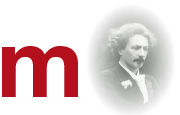Incredible technique
« The Second Liszt »
« His playing is unparalleled, original, unique », praise Lausanne newspapers after a concert given by Paderewski on 21st December 1889, dedicated to Saint-Saëns, Liszt and Chopin. « The mere activation of the two pedals enables him to obtain previously undiscovered effects; he plays to the instrument’s full scale of sound, touch and expression with incredible confidence and skill. His fortissimi challenge the entire orchestra, resounding like thunder, then instantly shifting to piano and pianissimo with startling dexterity. »
Emotion Bordering on Exaggeration
« In the morning, after breakfast, I would settle down with a good book in the hall, listening all the while to the master practising in his room upstairs. He was working on the Handel Variations of Brahms, repeating certain difficult passages slowly a hundred times. I noticed that his playing was greatly handicapped by some technical defects, especially in the articulation of his fingers, which resulted in an unbalanced sense of rhythm. [...] From time to time he enchanted me with a beautifully played phrase, or a lovely production of tone, which could be even moving, but he discouraged me a little by an exaggerated rubato and frequently broken chords. » Excerpt from « My Young Years » the first tome of the three-volume autobiography by pianist Arthur Rubinstein (New York, Alfred A. Knopf, 1973).
Recording Pioneer
The early recording days: already in 1911, the producer of « His Master’s Voice » (which later became EMI) summoned every modern communication resource to sell the first wax cylinders recorded by his virtuosos. The microgrooves – in addition to the pioneering Welte-Mignon rolls – have to this day enabled music lovers to appreciate Paderewski’s mastery.
A nomad virtuoso
In the wake of nineteenth century pure virtuosos, Ignacy Paderewski experienced both superlative bliss and the extreme limits of human resilience.
« The Greatest Pianist in the World »
« I am overtired », he wrote from Paris on 3rd March 1890 to his friend Irène Löwenberg. « The concerts I have given so far have been quite a success. I am due to begin the Parisian tour in a couple of days. Fear, emotion, worry, and every woe of this terrible artistic career are tormenting my every night. Yet this cannot be avoided. »
Adulation
There are countless testimonies on concerts given by Paderewski. Mostly enthusiastic, some even panegyrical... bordering on the comical!
« The Polish Siegfried »
« Paderewski at the piano appears as ancient sages willed poets and artists to be: possessed by a god », wrote Félicien Grétry in the Parisian magazine Musica, on 7th July 1907. « His rendering of Chopin remains unrivalled. Whenever Paderewski resuscitates Chopin, one can hear the Polish soul chanting. Paderewski reigns as an apostolic hero, a Siegfried even, over languid and aggrieved nocturnes, Polish tunes occasionally expressing a most legitimate uprising, and a music woven straight from the heart. »
Chopin
In 1932, Parisian society celebrated the centenary of Frederyk Chopin’s arrival in the city. On 25th June Ignacy Paderewski, indeed an apt ambassador for the master’s music, gave a stupendous concert at the Théâtre des Champs-Elysées in the presence of the French President and of Queen Elisabeth of Belgium. His friend Gustave Doret was among the audience, enraptured. He shared his impressions on 29th June in the Gazette de Lausanne newspaper.
In the Footsteps of the Genius in Paris
« In my view, no one should ever attempt to explain Paderewski’s virtuosity and interpretations, for there is nothing to explain. One merely experiences – as we did yesterday – absolute inner joy. Neither piano nor pianist is present. Music alone reigns at the height of beauty, perfection, and subtle sensitiveness; the extraordinary finesse of the rendition never wilts from sentimentality, and force is never replaced by brutality: Paderewski is the only pianist to truly possess such power. »
The conquest of the West
Following a dazzling early career in Europe, the United States seemed the « logical » next stage... at least to his impresarios. New York discovered Ignacy Paderewski on 17th November 1891 with a concert organised by the Steinway & Sons House, which immediately afterwards launched a tour of eighty dates throughout the country. Success soon shone, but the stress proved huge for the artist, who had to delve deep within his physical and mental reserves to withstand the pressure.
Gentleman farmer
Leaving his homeland probably amplified Ignacy Paderewski’s fondness for land. He had always been somehow akin to a gentleman farmer, for he particularly favoured resting in a peaceful natural haven between exhausting performances. This had led him to acquire Riond-Bosson near Morges, as well as several ranches close to Paso Robles in California, where he cultivated almonds and grapes among other plants. In addition, he co-owned land in Brazil, in the Santa Anna district of São Paolo, at a time when the city was not yet a megapolis...


